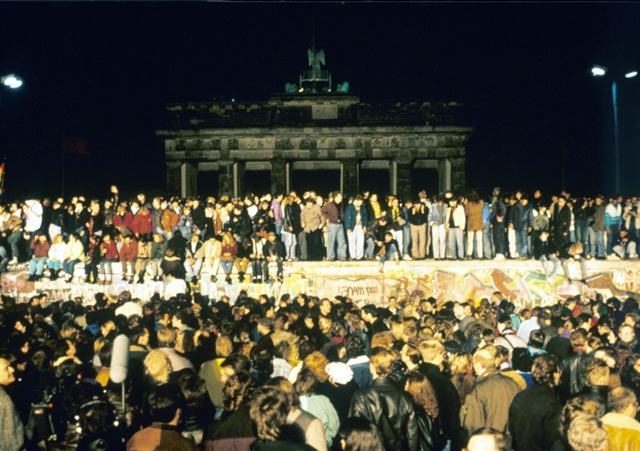Ambassador of Germany to Việt Nam Dr Guido Hildner sends a message to celebrate the 30th anniversary of German unity.

Prime Minister Nguyễn Xuân Phúc and Prime Minister Angela Merkel meet at the G20 in Hamburg in 2017. Photo chinhphu.vn
HÀ NỘI — 2020 is a special year. The COVID-19 pandemic is shaking the whole world and calling into question much that was familiar and supposedly self-evident. In this situation, it helps to recall important milestones in history. National holidays mark such central events. For Germany, this is the Day of German Unity. It is celebrated every year on October 3, and in 2020 for the 30th time. On October 3, 1990, Germany was able to restore its national unity. This was a moment of unexpected happiness and great joy.
Many Germans saw reunification as a historic gift. The division of Germany was the result of the Second World War. This war was caused by the criminal National Socialist regime in Germany, which represents the lowest point in German history. The war ended 75 years ago. The international order in which we live in today emerged from the experiences of this war. A central element was the founding of the United Nations 75 years ago. This international order is based on rules. It makes international law the basis for actions taken by states and offers multilateral structures for their co-operation. The main goals are the preservation of peace and the economic development of all peoples. This order postulates important values such as human rights, peaceful settlement of disputes, freedom of the seas and trade.
Germany owes its political and economic resurgence after the terrible fall caused by the National Socialist rule to this international order. Thanks to this order, Germany is today again a respected member of the international community and one of the most prosperous economies in the world. It is in this context that Germany was able to regain its national unity 30 years ago.
It is the essential German interest to preserve and develop this order, its multilateral structures, and its substantive rules and values. This requires active commitment. Germany is happy to have a strong partner in Việt Nam who shares this interest. Both countries have worked together particularly closely on this in 2020. They are members of the United Nations Security Council, Việt Nam chairs ASEAN, and Germany holds the Presidency of the Council of the European Union.
In 2020 Germany and Việt Nam also celebrate the 45th anniversary of the establishment of diplomatic relations. Relations between the two countries have developed impressively over these 45 years. This was expressed, among other things, during two telephone calls that were made on the occasion by Chancellor Angela Merkel and Prime Minister Nguyễn Xuân Phúc, and by Foreign Minister Heiko Maas and Deputy Prime Minister and Foreign Minister Phạm Bình Minh. The anniversary day itself, September 23, was celebrated with the signing of the government agreement on the Vietnamese-German University, a beacon of Vietnamese-German co-operation.
For future co-operation, the governments have agreed on topics such as environmental protection, energy supply and vocational training. The challenge of climate change will be another focus. The new Free Trade Agreement between Việt Nam and the European Union opens up attractive opportunities for intensifying economic relations. The Vietnamese community in Germany and the German community in Việt Nam are building bridges between our two countries.
Germany will continue to attach great importance to Việt Nam and Southeast Asia in the future. The Federal Government has just adopted new policy guidelines for the Indo-Pacific region, which substantiate and comprehensively express Germany's commitment to the region. Germany offers the regional co-operation in seven policy fields: strengthening multilateralism; tackling climate change and protecting the environment; strengthening peace, security and stability; promoting human rights and the rule of law; strengthening rules-based, fair and sustainable free trade; rules-based networking and the digital transformation of regions and markets; and bringing people together through culture, education and science.
The pandemic that will shape 2020 clearly shows that the world's problems can only be solved together. No country can master global challenges on its own. Germany stands ready for international co-operation. — VNS

People on the Berlin Wall after the opening of the border in 1989. Photo courtesy of the embassy
OVietnam